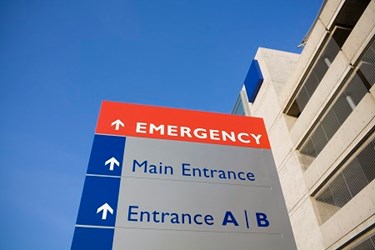Is HIT The Answer To Avoiding Readmission Fines?

By Katie Wike, contributing writer

More than 2,600 hospitals were fined by Medicare in the latest round of readmission penalties leading many to ask if technology can play a bigger role in avoiding future fines.
Medicare is fining 2,610 hospitals for having excessive readmissions within a month of discharge in a third round of fines. Thirty-nine of the recent fines were for the highest amount allowed.
Last year, Kaiser Health News reported Medicare spent $26 billion on two million readmitted patients. Officials estimate that $17 billion of that amount came from potentially preventable readmissions.
“Under the new fines, three-quarters of hospitals that are subject to the Hospital Readmissions Reduction Program are being penalized. That means that from October 1 through next September 30, they will receive lower payments for every Medicare patient stay – not just for those patients who are readmitted,” wrote Kaiser Health News. “Over the course of the year, the fines will total about $428 million, Medicare estimates.”
So how can hospitals identify these “potentially preventable” cases and tackle them before patients return for another stay in the hospital? According to the many success stories, the answer may be as simple as another gadget.
● Geisinger Health Plan uses Bluetooth-connected weight scales to check in on patients after they are diagnosed with congestive heart failure. Just by asking them routine questions about how they are feeling and whether or not they are adhering to their medications, the organization saw up to a 44 percent reduction in readmissions.
● Automated phone calls are another way to monitor patients after they leave the hospital. Health IT Outcomes reports readmissions were nearly cut in half just by calling patients to check in on their health. Eighty-five percent of the case managers handling these patients said they felt technology helped them closely monitor patients and ultimately reduce readmissions.
● The University of Pennsylvania Health System has integrated readmission prediction software into their EHR. With this, they are able to view patients flagged as “high risk” to return to the hospital. "The results we've seen with this tool show that we can predict, with a good deal of accuracy, patients who are at risk of being readmitted within 30 days of discharge," said lead author of a study on the software, Charles A. Baillie, MD.
Hackensack (N.J.) Physician Hospital Alliance ACO gave their patients tablets. Through these tablets, nurse care managers can give patients instructions on when to take their medication, measure their blood sugar, and more. Although equipping patients with this kind of high tech gadget costs about $150 per month per patient, officials say it’s a small price to pay to avoid Medicare fines. Those who use the tablets have a readmission rate of just 8 percent, while other Medicare patients had a rate of 28 percent.
